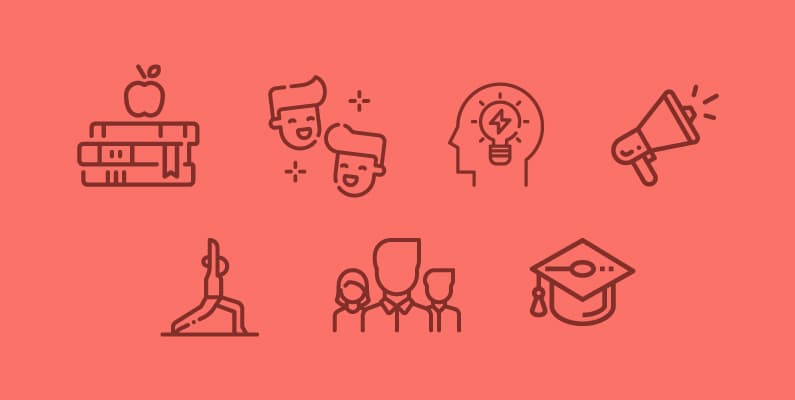7 Must-Haves for Early Childhood Teachers
| 3 Min Read

Many people have a calling to work in education, but it takes a special kind of educator to work with young children in their first five years of life. These teachers support essential cognitive, behavioral, social, and physical developmental milestones. Patience, creativity, a love for the field, and a bachelor’s degree in child development are essential elements of an effective early childhood educator. Read on to learn about the skills and strengths for success in the classroom and your career.
A Passion for Early Childhood Education
Education is not a field that just anyone can enter and be successful and fulfilled in their career. Prospective educators must have a passion for teaching young children. This enthusiasm should reach beyond playground fun and focus on the skills needed to help young children meet developmental milestones.
Patience and a Sense of Humor
Young children are full of energy and curiosity. Among the strengths of the most successful early childhood educators is the ability to bring a great deal of patience and a dose of humor to the classroom to keep children engaged in the day’s lessons.
Creativity
Reaching children and helping them learn requires creativity. Early childhood educators must possess the skills to guide students in connecting the dots and relating lessons to their current stage of development. These educators should be able to adapt lesson plans to concepts that children can understand. Incorporating learning games and other teaching techniques can keep children engaged and focused throughout the day.
Communication Skills
Children are sponges at this early age but are also new to learning. Early childhood educators must be able to count communication among their strengths. It’s necessary to communicate with young learners on their level, including being able to break complex subjects into easily digestible pieces. Teachers at this level must be able to give parents details about classroom progress so they know their child’s performance and achievement level. Communication helps parents identify teachable moments in everyday situations and boost their child’s kindergarten readiness.
Flexibility
Even the best early childhood teachers will go off course throughout the day due to unforeseen circumstances or learning hiccups. While creating a lesson plan to outline essential concepts that should be addressed in the curriculum is vital for any classroom, even the best plans sometimes don’t happen the way we hope. Being flexible can help lessen stress levels and keep things on track.
Understanding Diversity
Children come from different home environments and backgrounds, leading to different learning styles. Early childhood teachers should be able to accept these differences and be willing to work with varied learning styles to ensure all students leave the classroom having achieved the identified skills and learning objectives.
A Bachelor’s Degree in Child Development from CSP Global
Early childhood education is not a one-size-fits-all teaching career. With the right education, future teachers can build the valuable skills and strengths necessary to drive their success in the classroom. A degree in child development and education ensures educators understand young children’s primary learning objectives and developmental milestones.
This credential also gives teachers the skills to support kindergarten readiness and future academic achievement. A bachelor’s degree prepares early childhood educators to be advocates who understand the value of pre-K education as the foundation for a child’s future academic success.